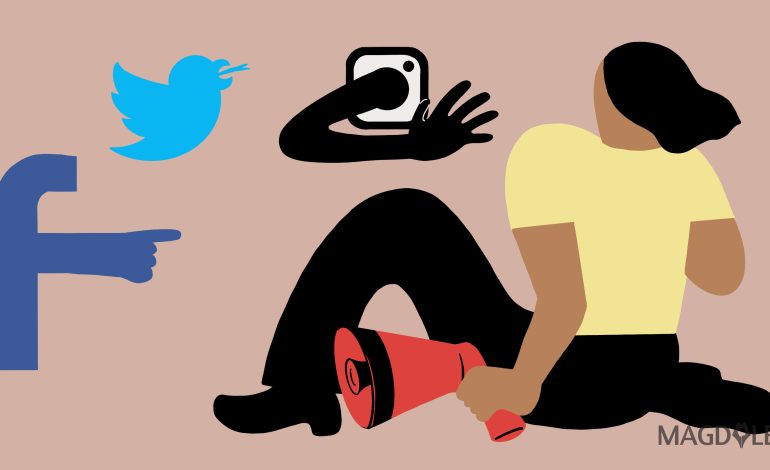Emphasizing Women in the Discussion of Digital Rights in Indonesia

“Any society that fails to harness the energy and creativity of its women is at a huge disadvantage in the modern world.”
CCTV News’ Tian Wei made this statement in 2014 when China clocked in at an unimpressive number 69 out of the 139 countries surveyed in the World Economic Forum Global Gender Gap Report. By way of comparison, Indonesia was ranked 95th.
While we cannot measure solely based on the number, such efforts in quantifying gender-based disparities at the very least serve to help us in understanding what is counted as equality in a modern world and how we are lagging. Even as Indonesian women have improved their position on some indices, such as political empowerment, they are still lagging in categories like health, educational attainment, wage equality, and even digital rights.
The cyberspace promised to create a civilization that is more humane and fairer than what most governments have made before. But as we progress today, the benefits offered by cyberspace also come with inequality, disinformation, and breach of privacy in a magnitude never imagined before. For women (and other marginalized communities), the cyberspace can be an intensification of the analog life, where underrepresentation and the risks of being harassed remain strong.
In the pursuit of a healthier digital ecosystem, in the early part of 2021, EngageMedia conducted a research to map out digital rights actors and landscape in Indonesia. We came across initiatives to counter the narratives for women to create a space to address issues neglected by the mainstream media. This is evidenced by the emergence of newly established platforms like Puan Indonesia, which aims to center and promote the voices of the nation’s women.
When EngageMedia spoke with the platform’s founder Mardiyah Chamim, she noted that women have never been adequately addressed in Indonesian media, and when they are, the women that are featured are almost uniformly members of the socioeconomic elite, such as female CEOs. Though preferable to no attention at all, such coverage is not at all representative of the experiences and concerns of the vast majority of women. For this reason, Puan focuses on the lives of everyday women and provides a space for their narratives to be shared.
Such spaces have also allowed more women to fight for equal access to an open internet and all of the advantages this entails. For our research on Indonesian digital rights, we interviewed 27 people from 25 organizations, ten of whom were women. We also issued a survey that garnered 110 responses, of which 31 percent were from women.
Our findings show that for women to have equal representation in the spheres of technological and business innovation, we must first urgently address the epidemic of online gender-based violence, or Kekerasan Berbasis Gender Online (KBGO) The issue of online gender-based violence has emerged as a pressing issue in the domain of digital rights. The COVID- crisis has also contributed to the problem as social distancing policies have forced women to increase their exposure online on platforms like social media.

Photo by Markus Spiske on Unsplash
There has been a substantive increase in the numbers of cases reported. LBH APIK, a legal aid organization focusing on women’s issues, recorded that in March to April 2020, 30 of the 97 cases filed were of KBGO (gender-based violence online) cases. A recent report issued by the National Commission on Violence Against Women (Komnas Perempuan) also reported a sharp increase in the number of gender-based violence incidents against women online, from 409 in 2019 to 1425 cases in 2020. Of these, 940 cases were directly reported to the Commission. In a similar vein, the report also highlighted that the number of cases reported to organizations providing legal aid assistance to women jumped from 126 cases in 2019 to 510 cases in 2020.
In 2020, digital attacks against Magdalene and Konde.co, two alternative online media platforms that promote and advocate women’s rights, provide illustrative examples. Konde.co experienced an attempted breach of its Twitter account, allegedly in response to its work exposing a sexual violence case involving a scholarship awardee at Australia National University.
The incident with Magdalene occurred in May 2020 when a distributed denial of service attack rendered its webpage temporarily unavailable. Luviana, the founder of Sindikasi (Media and Creative Industry Trade Union for Democracy) believed these digital attacks were motivated by Konde’s general policy of promoting writings that criticize discrimination against women and that argued for safe online space for women to express their views.
To date, there are only a few Indonesian NGOs whose key programs address gender-based violence online. Purple Code, a collective rights group led by Dhyta Caturani, has pioneered the advocacy of KBGO since 2015. As part of its work, Purple Code provides training for other NGOs to raise awareness on KBGO, helping organizations like SAFEnet to intensify its advocacy on this issue. It also worked with SAFEnet and other NGOs to initiate a taskforce on KBGO, which garners public attention through its social media accounts and provides an online form to report KBGO cases online.
Some NGOs have made this issue central to their strategic program. For example, in the last two years, SAFEnet has been working closely with Komnas Perempuan to provide assistance to victims. In its 2021 annual report, SAFEnet found a 400 percent increase in reported cases related to dissemination of intimate material without consent (NCII), from 45 cases in 2019 to 169 cases in 2020.
Furthermore, the limited available support for KBGO victims has added to the complexity of the problem, further discouraging victims from speaking out. In 2019, we learned of the case of Baiq Nuril, a teacher living in Indonesia. Faced with persistent sexual harassment from her boss, she decided to gather evidence by recording the lewd comments he made to her over the phone. When she shared the recordings with a colleague online, her completely justifiable act of self-defense led to an indictment and conviction through the country’s ITE Law, a statute that regulates internet content under a mandate to suppress defamation, hate speech, pornography, and other types of expression deemed undesirable by the government. In KBGO cases, the implementation of laws like this have ultimately worked against female victims.
It is therefore heartening that an increasing number of NGS are now providing basic skills on data protection and online safety. These include ICT Watch, SAFEnet, AJI, SINDIKASI, and Purple Code. However, there are still ways to go in terms of public awareness on KBGO.
Siti Aminah Tardi, a Komnas Perempuan commissioner, has noted that advocacy on KBGO continues to face challenges that range from the relatively small numbers of organizations working on this issue to the lack of adequate legal protections.
There is much reminding on Indonesia’s ability to address these problems. In order to harness the energy and creativity of women, the country must first protect those women and afford them the freedom of expression online that they deserve.
Check the research to map out digital rights: https://engagemedia.org/projects/research-digital-rights-indonesia/.
For futher information, check also: https://engagemedia.org/.
If you are experiencing gender-based violence online and requiring assistance, please contact:
- Task Force KBGO in this link
- Layanan SAFEnet in this link
- Or contact LBH Apik for legal assistance in this link
This article is written by Diani Citra in her capacity as a Researcher for EngageMedia.






















